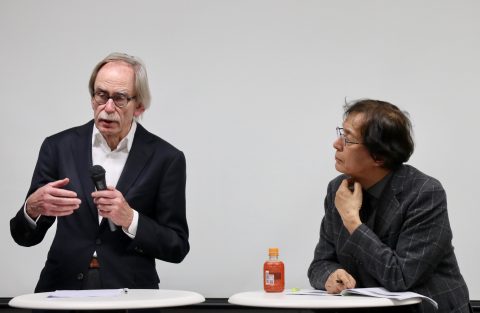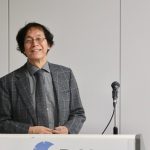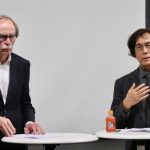
ダウンロード
場所
Deutsches Institut für Japanstudien
Jochi Kioizaka Bldg. 2F
7-1 Kioicho, Chiyoda-ku
Tokyo 102-0094, Japan
アクセス
登録情報
The event is held in English.
After the presentation and the comment there will be time for Q&A and networking.
Admission is free, registration is required.
Registration Form
We are sorry! Registration for this event is no longer possible.
Regulating for a Better Work-life Balance: German and Japanese Experiences
2019年3月4日 / 18時半〜20時
Hartmut Seifert, WSI Düsseldorf
Katsutoshi Kezuka, Chuo University
Germany and Japan have experienced rapid growth in non-standard employment and particular in part-time work in the last 30 years. Nevertheless, both countries differ considerably when it comes to important indicators of work-life balance such as working time. According to the OECD, in Japan around 22 per cent of workers have a work week of 50 hours or more, whereas in Germany this applies to less than 5 per cent. Annual average working hours in Japan stand at 1,600 hours but only at about 1,300 in Germany. Despite these differences, in both countries policies that aim at more flexible working time regimes, including measures to reduce working hours, are currently high on the political agenda.
At this DIJ Forum we ask how the differences between the two countries can be explained and to what extent current debates are comparable. We will also look at the challenges of political interventions to achieve shorter and more flexible working hours, and analyse whether regulatory interventions such as the current “work-style reform” package of the Japanese government can be expected to have a measurable impact. Two renowned experts from Germany and Japan, the labour market economist Hartmut Seifert and the scholar of labour law Katsutoshi Kezuka, will discuss these issues from a comparative as well as legal and economic perspective.
Dr Hartmut Seifert is a leading and prolific scholar of the German labour market. Trained as an economist he has been with the Wirtschaftswissenschaftliche und Sozialwissenschaftliche Institut (WSI) of the Hans Böckler Foundation in Düsseldorf since 1975 and served as its director from 1995 to 2009. He has published widely on regulation of working time and non-standard employment in Germany and Europe. He has been a frequent visitor to Japan for over 20 years.
Prof Katsutoshi Kezuka, is professor emeritus of labour law at Chuo University in Tokyo and former president of the Japan Labour Law Association (日本労働法学会). After graduating from Hitotsubashi University, he taught labour law at several universities in Japan. He has authored several major publications on the legal aspects of working conditions and non-standard employment. A fluent German speaker, Prof Kezuka has intimate knowledge of the labour laws of both countries.


